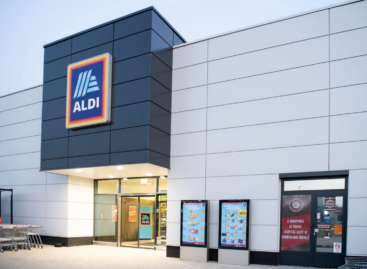Lego, Samsung and Audi are the top employers to work for
In May, Randstad published its labour market overview for the seventh time. It might sound like a commonplace, but it is true: after the coronavirus pandemic, the world won’t be the same as it was before. In the spring of 2020 not only a world pandemic started, but a serious economic crisis as well. Basically, all Hungarian companies are cutting wages, laying off people and taking away employee benefits to economise.

Sándor Baja
managing director
Randstad Hungary,
the Czech Republic, Romania
A survey conducted by Portfolio.hu at the end of last year revealed: two-thirds of Hungarians can’t even survive 3 months without an income. This also means that consumer demand is falling in the market and the formerly good 3.6-percent unemployment rate will soon worsen – probably to double-digit numbers. In May 40 percent of Hungarian companies were paying the salaries from loans. Cheap loans from the government will be essential in the survival of businesses. In this situation, the big question is: will these companies be able to adapt to the new situation after the epidemic is over, will there be demand for their products or services?
Randstad’s study was conducted in 33 countries; in Hungary with the participation of 6,500 18-65 year old working-age individuals. It is always the 150 biggest employers that are featured in Randstad’s survey. In 2020 Lego turned out to be Hungary’s most attractive workplace, followed by Samsung and Audi. Besides these, the most popular companies are in the IT, telecom and services sectors.
However, FMCG and other retailers are better known than these, as people are using them on a daily basis. 35 from 100 respondents would like to work in retail/HoReCa and 37 from 100 said the same about the FMCG sector. Both retail trade and the FMCG sector have become 1 percentage point less popular. In the food industry, Nestlé is the most attractive workplace: although they lost 2 percentage points, their 50-percent performance means every other Hungarian would like to work there. As for the retail/HoReCa sector, altogether 39 companies were evaluated by Randstad; Lego, Decathlon and Ikea are very popular, and they are followed by grocery retailers Aldi and Lidl.
In Hungary, only 7 percent of respondents said they work less than 30 hours a week. It is noteworthy that 21 percent of Hungarians switched to a new workplace in the last 12 months – the European average was 17 percent. 22 percent of workers got a new job where they earn less, and two-thirds of them changed their workplace for less 10 percent more money. As for the most popular benefits, 84 percent would like to see their travel costs reimbursed and 58 percent got actually their travel money back. 77 percent wanted the option of working from home, but only 24 percent was granted this opportunity. Meanwhile, the world has started changing, and we have realised that the home office system can be super effective with good teams! //
Related news
Lidl guarantees fairer prices for cocoa farmers
🎧 Hallgasd a cikket: Lejátszás Szünet Folytatás Leállítás Nyelv: Auto…
Read more >Related news
Nestlé to sell remaining ice-cream assets but commits to Froneri venture
🎧 Hallgasd a cikket: Lejátszás Szünet Folytatás Leállítás Nyelv: Auto…
Read more >







